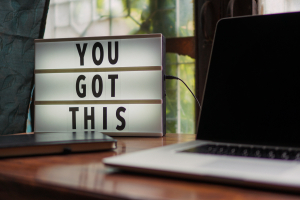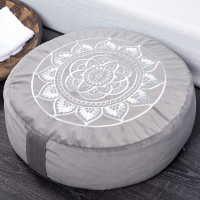Top 10 Good Answers to “How Do You Stay Organized” Interview Question
How do you keep organized is a typical interview question while applying for jobs. This and similar interview questions are meant to gauge your organizational ... read more...and time management abilities. Employing managers want to know that you are a reliable deadline-setter who doesn't get easily overwhelmed. Here are some of the Good Answers to “How Do You Stay Organized” Interview Question that demonstrate good organizational habits that allow you to stay on top of things.
-
When you can start monitoring time from your Google Calendar, keeping timesheets manually can be a chore. An efficient way to achieve this is by using a time tracking tool to extract your calendar entries and display a report to help you become more conscious of how you're using this priceless resource and time. Being organized allows you to save the business time and money. Interviewers value candidates who use time management techniques in their everyday work processes because of this.
Example:
I have a set plan for efficiently managing my time and maintaining organization. In my current position, I set objectives for the conclusion of each day and the week. I always know how much time is available since I use a Google calendar to keep track of crucial dates and impending events. I allot time blocks for each task after estimating how much time will be required for it.
I make an effort to leave as much time open at the end of each day since doing so gives me flexibility in case I get thrown a curveball and get a last-minute, important task. When I need more time, I stay later so that I don't have unfinished business at the end of the day, in case there are fires to put out first thing in the morning.
Image by Anna Nekrashevich via pexels.com 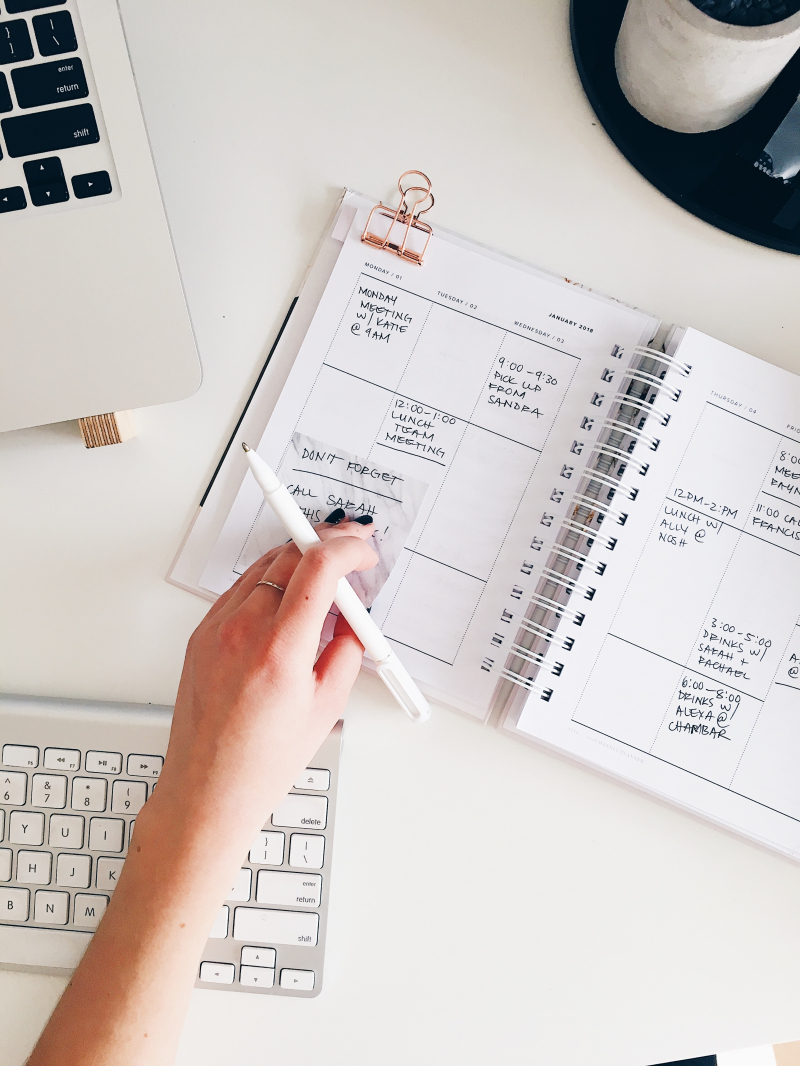
Image by Marissa Grootes via unsplash.com -
A team's productivity, employee morale, and the quality of their output can all be improved with effective collaboration. You might have a better understanding of the entire advantages of working well as a team if you explore the numerous benefits of collaboration. You may increase the value of your contributions to your team by gain more knowledgeable about what cooperation can offer in a professional setting. Employers seek applicants who can demonstrate this. It can be seen as one of the Good Answers to “How Do You Stay Organized” Interview Question.
Example:
Throughout college, I formed the foundational behaviors for a highly structured existence. I frequently participated in group assignments with other college students, and most of the time, my team members had poor time management skills.
I efficiently collaborated with my team colleagues on group projects using Google Drive, and I made sure that each person's daily tasks were completed. I divided my day into blocks of time, crossed out the times of my classes, and wrote down short-term objectives for each free block in my diary. Big work would be divided into manageable portions that fit into each block, and I would give top priority to urgent, high-value jobs. I made a point of using Sunday evenings to plan the upcoming week and never letting any tasks spill over into the following week.

Image by Marten Bjork via unsplash.com 
Image by Ken Tomita via pexels.com -
Making a list of your daily responsibilities will help you be more productive and less stressed. Your goals can be broken down into manageable tasks with the help of to-do lists, and you can finish big projects by splitting them up into smaller tasks. You can manage your time more effectively and you are motivated to accomplish more throughout the day by keeping a task log. Your response must demonstrate that you are a person who understands how to organize work and allocate time effectively. Next, demonstrate to the company your productivity and effectiveness.
Example:
I have consistently demonstrated a high level of organization throughout my career. I rely on a system to make sure all duties are completed successfully every day. I make a to-do list at the end of each day so that I can prepare for the following morning.I always offer to help others if I have the time during team meetings, or if I am running late, I request task delegation from other team members. I prioritize the urgent jobs first and separate them from the important (but less time-sensitive) chores. I schedule time buffers into my tasks so that I can take on last-minute assignments from my manager if needed or focus even more intently on completing them if there is no need for the time buffer for other chores.

Image by cottonbro studio via pexels.com 
Image by Lisa Fotios via pexels.com -
To increase productivity and reduce stress, it's critical to keep your office tidy. It's crucial to tidy up your workstation before the workday begins and to limit the products and paperwork you keep on your desk to what is really necessary. You can stay organized by swapping these out for other documents as necessary. A person who leads an orderly, scientific lifestyle frequently works quickly and with perfectionism, which allows them to complete the best work while staying on schedule. Employers are looking for that, too.
Example:
I follow a few fundamental procedures to maintain organization at home and at business. I always make an effort to plan ahead as much as I can. I will begin working on a project early if I am aware that it has a deadline or is nearing one so that I have enough time to finish it.Second, I enjoy keeping a thorough calendar on which I note all of my appointments and due dates. I'll be able to guarantee that everything is finished on schedule.
Finally, I make an effort to keep my workstation neat and orderly. This aids in keeping my attention on my work and keeps me from becoming sidetracked. I can support others and take on new work as it emerges with the most time possible if I consistently stay on top of my tasks.
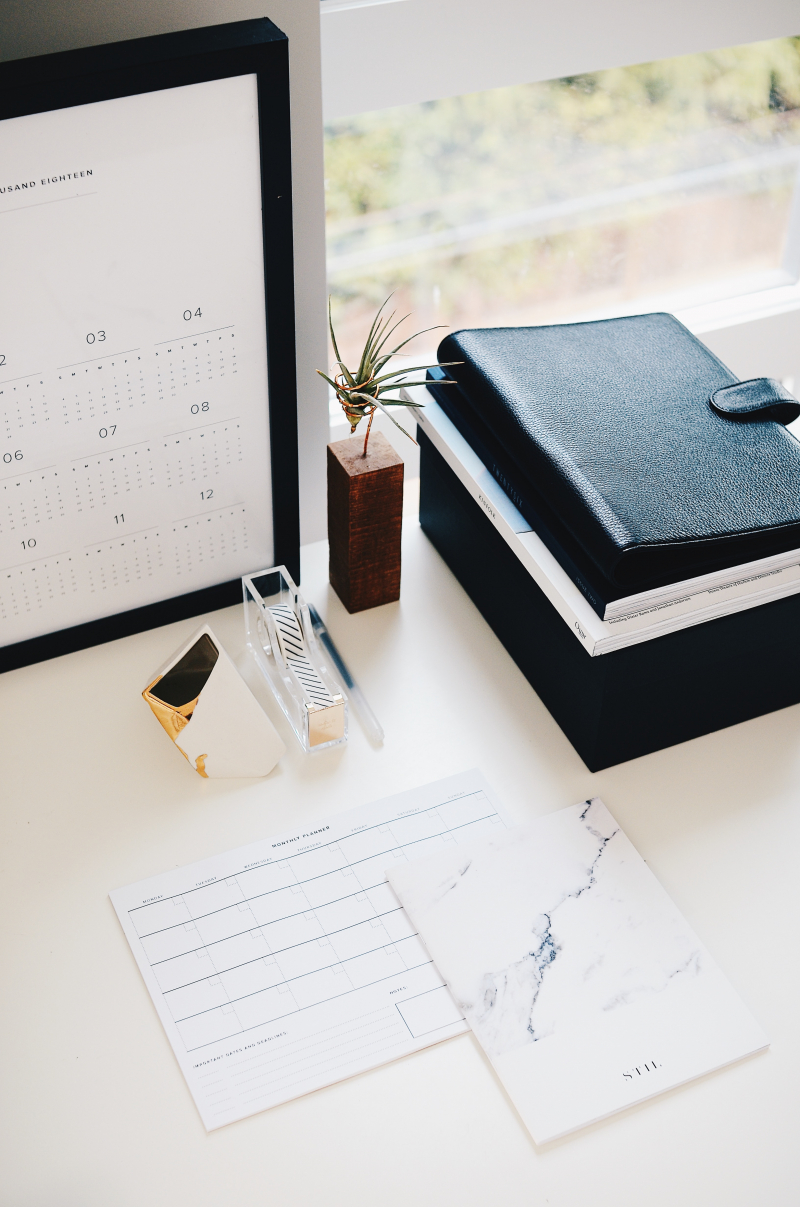
Image by Marissa Grootes via unsplash.com 
Image by Daria Shevtsova via unsplash.com -
Your response must demonstrate to the employer that you have the flexibility to prioritize more important work when your schedule is hectic. You must still demonstrate that the day's job is still certain to be done on schedule. This is one of the Good Answers to “How Do You Stay Organized” Interview Question.
Example:
I require a very particular time management strategy in order to offer the folks who come to me the best possible support. People don't always realize when they need support, so it's critical that my strategy be adaptable and open to them reaching out whenever necessary.
I originally became a morning person in order to be adaptable and productive. I always have time each morning to prioritize, prepare, and complete the most pressing work for the day since I arrive at the office early. Second, I always use a computerized bubble-sort list to manage my to-do list. Every time a new assignment or meeting is requested, I check it against the current list and adjust its priority for the appropriate time.
In order to start each day fresh and avoid creating a backlog of work, I remain late every day to finish any significant chores that were left unfinished during the workday.
Image by Marissa Grootes via unsplash.com 
Image by Andrew Neel via unsplash.com -
Being organized helps the business save time and money. Interviewers value applicants who use time management techniques in their regular workday activities for this reason. You might talk about how you create better work by concentrating on one activity at a time to save time. You might be able to explain how you avoid reading emails and taking calls when working on high-priority assignments if you work more quickly and with fewer interruptions.
Example:
I strictly adhere to an action list approach to plan my day in order to maximize my time. I have a thorough list of all the regular duties, project tasks, and one-time tasks that must be completed. I block off time for productivity on my calendar and make every effort to keep these periods.I will adjust my production time as necessary if I have to cancel or reschedule meetings or other events. By setting out the time in my calendar, I've found that it's less likely that a dispute will develop suddenly. I always make sure I am aware of the deadline for each task I have been given, and whenever I can, I set my own deadline a day or more in advance. This allows me to manage my workload at all times, shift tasks up the priority list when those changes, or take on new projects as they arise.

Image by Tran Mau Tri Tam via unsplash.com 
Image by Lauren Mancke via unsplash.com -
This answer is suitable for those who want to apply for the position of team leader. A company will want to find a leader who knows how to organize his time and divide tasks for each member in a reasonable way to be able to complete the work on time. You can combine digital folders to organize your work without missing a single one. Your answer should reflect those things.
Answer:
As a team leader, there are a few crucial things I do to keep an organized team of individuals. I start by using technologies to organize the group's work. This includes OneNote, the Outlook calendar, shared digital folders, and Microsoft Teams. I make sure that note-taking, planning, scheduling, and communication all take place where they should. I regularly check in with each team member to make sure they are moving in the right direction, and I assign assignments to each team member in accordance with their areas of expertise.Whenever possible, I strive to manage my free time so that I may take personal responsibility for unforeseen duties as they emerge or assist team members with specific assignments. I always plan the upcoming week's work at the conclusion of the previous week.
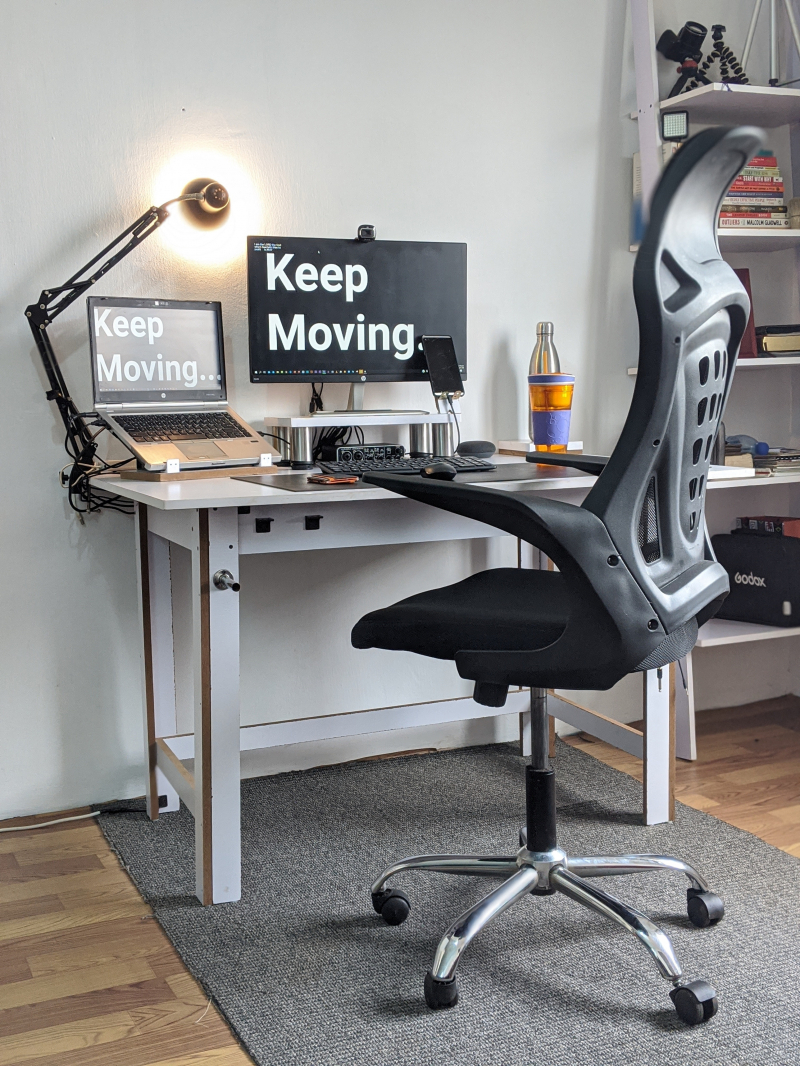
Image by Oladimeji Ajegbile via pexels.com 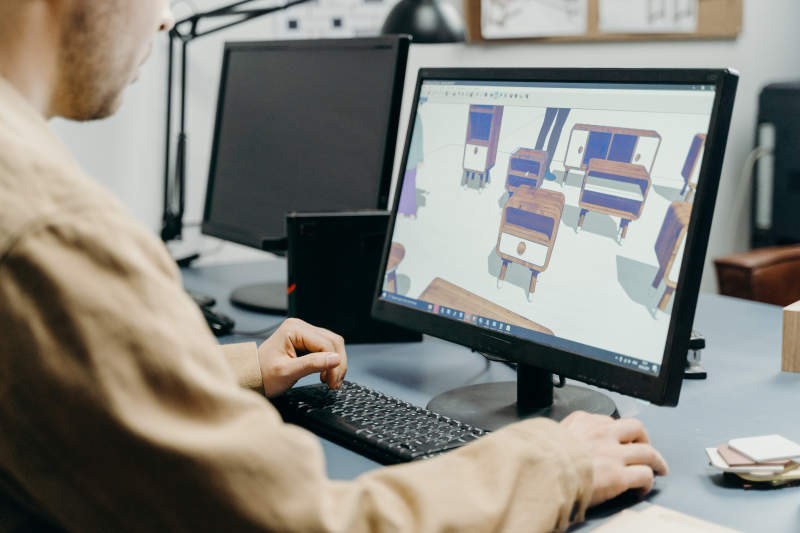
Image by cottonbro studio via pexels.com -
Past experience is always something that employers are curious about, because from there they can know more about the candidate's ability. Consider your former responsibilities where you have to maintain organization when you respond to queries about the company. Detail the techniques you employed and how they affected your daily job activities.
You might also talk about how being organized helped your previous company. This answer shows that you already have experience in time management and the company will not need to train you too much in this area. This respond is also one of the Good Answers to “How Do You Stay Organized” Interview Question.
Example:
In each of my previous positions, my bosses had a fairly hands-off attitude, and I was permitted to create my own systems and organizational techniques. I enjoyed the challenge and came up with some excellent strategies to save time, prioritize my most important chores, and make sure that the other tasks that aren't top priorities don't go lost or forgotten.
I organized all of my work using a combination of email and Google Calendar, as well as automated reminders, email tags, and email folders. It also took some time to get used to and know how to effectively use these tools, but now I have mastered and managed my day schedule very well. If you'd like, I can provide you some samples of how this appeared in the past for particular projects.

Image by Bich Tran via pexels.com 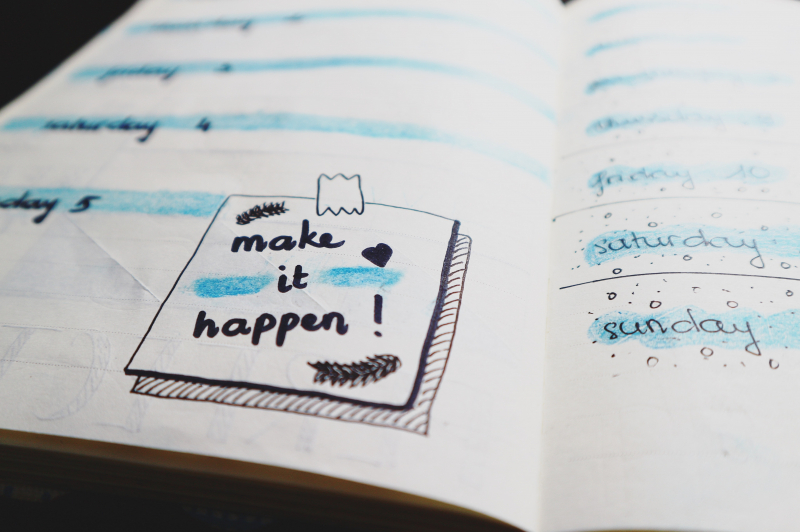
Image by Bich Tran via pexels.com -
You can demonstrate your organizing abilities in a number of ways throughout the interview. Prior to the interview, be on time and prepared with everything you need. Carry a briefcase or bag with copies of your well-polished résumé, examples of your previous work, a list of questions you want the interviewer to answer, and supplies like a pen and paper so you can take notes. Next, attentively respond to questions by addressing each one's various facets. Finally, thank your interviewer for their time as a way to go out on a high note.
After the interview, make sure to contact them and extend your genuine gratitude. It's a great way to show that you're organized and prepared for every appointment. It shows that you respect the employer and have great behavioral skills
Example:
I appreciate you coming to see me today, and I'm eager to respond to any inquiries you might have. I am a person who always prepares well for all my meetings, and especially for job applications - meetings that create job opportunities for me.
In case you need them, I have extra copies of my résumé with me. Together with my creative portfolio, I also brought some of the artwork I produced most recently for an advertising campaign. I hope that the things I have prepared can give you the most objective view of the person and my ability to work.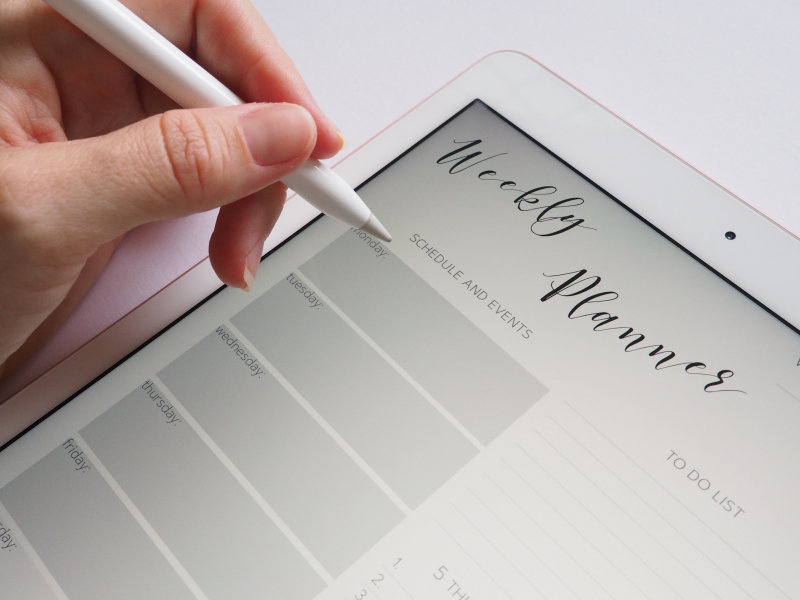
Image by Jess Bailey Designs via pexels.com 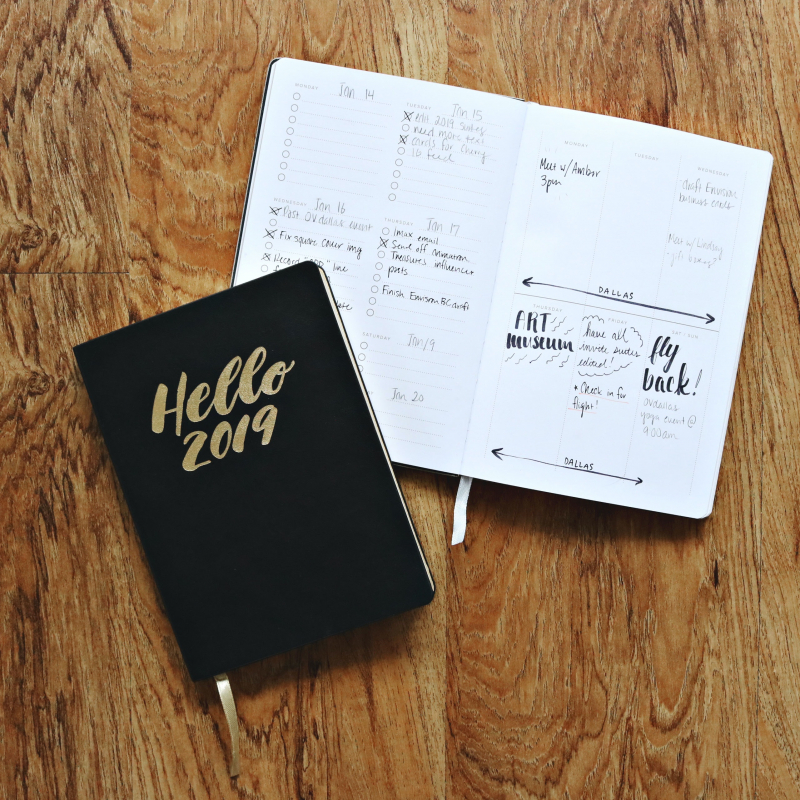
Image by Madison Inouye via pexels.com -
To be more efficient and productive at work, you can use the Eisenhower matrix to prioritize your tasks according to their urgency. By categorizing jobs according to their urgency, you can use the Eisenhower technique to decide which chores need to be finished right away and which ones can be dropped. By responding to the question in this manner, you may demonstrate to the employer that you are a person who has studied time management techniques, are a person of science, and know how to organize work to obtain the best performance.
Example:
As a senior management executive, I manage my time in four steps. It resembles the Eisenhower matrix in many ways.I first determine which jobs I should handle, which my assistant can handle, and which should be sent to my team or other coworkers. At the end of the day before, I then make a list for the next day. Since everything I do is geared on providing value to the shareholders and furthering the goals of the company, this list is always prioritized according to its urgency and potential influence on the business. Only the most essential chores or meetings are allowed to interrupt my schedule.
Next, I delegate my assistant to handle and filter my calls and emails so that I may concentrate fully on the task at hand. With programs like Outlook calendar, Microsoft To Do, Teams, and Sharepoint, which make it simpler to access my work from any location and collaborate with others quickly and effectively, I manage all of these tasks.
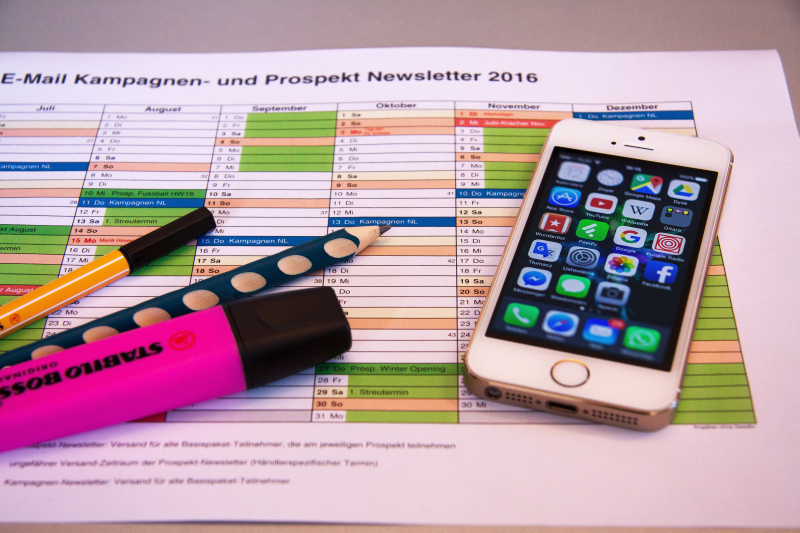
Image by Pixabay via pexels.com 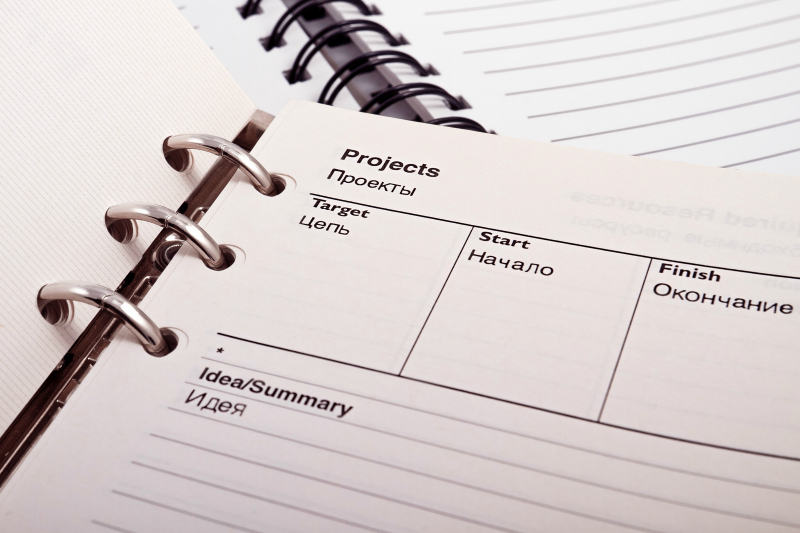
Image by Pixabay via pexels.com
















